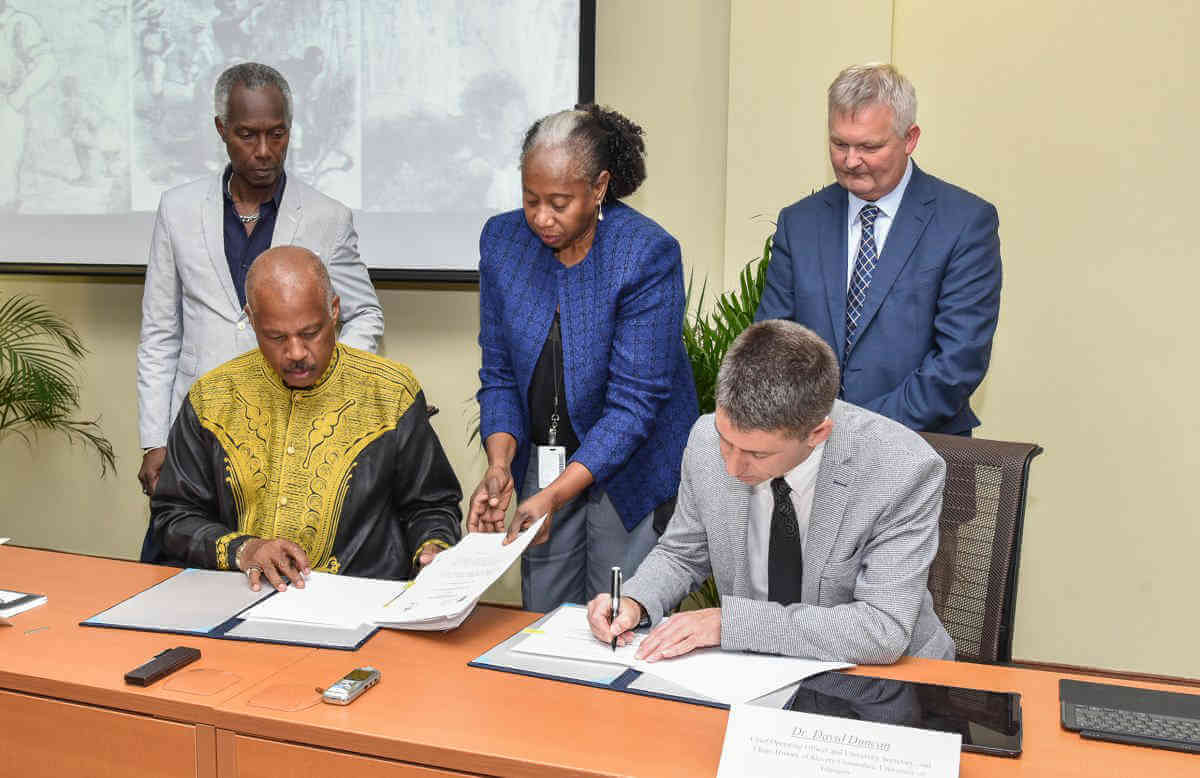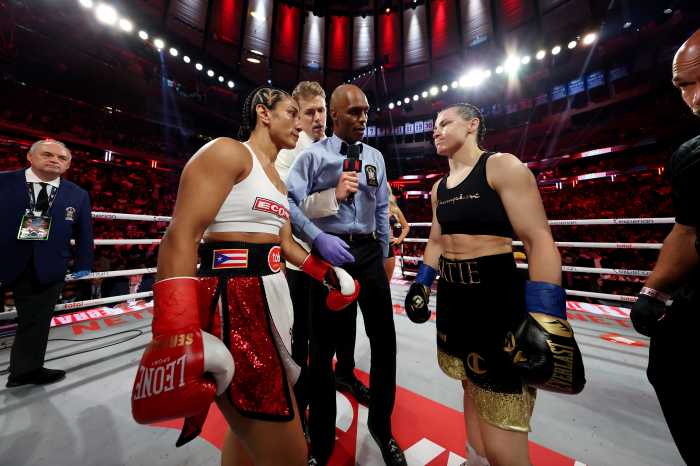The University of the West Indies has inked an agreement for reparations that is said to be the first such deal and one that gives an indication of a form compensation may take for centuries of unpaid labor stemming from the Trans-Atlantic slave trade.
At the end of last month UWI entered into an historic agreement with the University of Glasgow (UG) for £20 million (US$ 24.2 million) that will go towards funding of research to promote development initiatives to be jointly undertaken with UWI over the next two decades.
“The funds will facilitate the operations of a jointly-owned and managed institution to be called the Glasgow-Caribbean Centre for Development Research. The Centre will target and promote solutions to Caribbean development problems in areas such as medicine and public health, economics and economic growth, cultural identity and cultural industries, and other 21st century orientations in Caribbean transformation,” UWI stated.
Led by Vice-Chancellor, Hilary Beckles, UWI had begun negotiations with UG for compensation since last year after that Scottish university had published a document admitting to its culpability for slavery by benefitting donations by slave owners.
“Between the 1780s and 1880s it received millions of pounds in grants and endowments from Scottish and English slave owners that served to enrich and physically expand the near 600-year-old university,” the agreement signed by Dr. Beckles and Dr. David Duncan, University of Glasgow’s chief operating officer.
In its 2018 statement UG estimated “the present-day value of all monies given to the university which might have been fully or partly derived from slavery to be in the order of tens of millions of pounds (One pound sterling = US$1.21), depending on the indexation formula”.
“The evil of slavery has been stitched into the very fabric of Glasgow for almost 200 years: Buchanan Street, Glassford Street and Ingram Street are named after some of the most notorious exploiters of the slave market while Jamaica, Tobago and Virginia are similarly commemorated,” the UK Guardian newspaper had commented shortly after UG published its report.
UG’s £20 million funding as its effort at reparative justice carries huge symbolism as the British government’s compensation pay out to slave owners for loss of their slave labour at the abolition of English slavery in 1833 was £20 million.
That is where the similarities end however, because the equivalent value today of the money paid out in 1833 was so high that England’s government managed to finally repay the loan it had taken out to compensate slave owners only in 2015.
The total bill for slave owners at abolition of slavery was £47 million. Along with the £20 million loan the British government had taken out, it was decided that slaves would be kept in bondage giving free labour to plantation and other slave owners for another five years to pay off the remaining £27 million under a system termed ‘Apprenticeship.’
According to UWI the, “agreement represents the first occasion on which a slavery-enriched British or European institution has apologized for its part in slavery and committed funds to facilitate a reparations programme. In this instance, the two universities have adopted a regional development approach to reparations”.
“The seminal agreement, the first of its kind in the Western World … for slavery reparations since British Emancipation in 1838,” UWI stated.
Centres for study will be established on a UWI and a UG campus later this year, and a focus will be, “on joint efforts to clean up the colonial mess that continues to subvert efforts at Caribbean social growth and economic growth.”




























